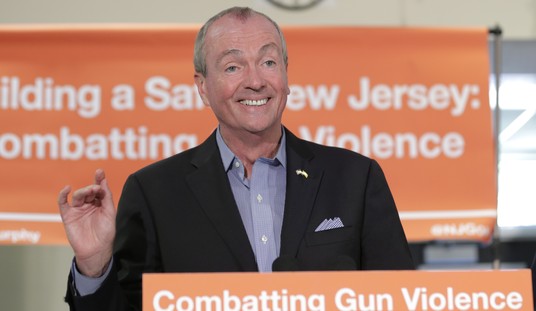New York City Mayor Michael Bloomberg joins the list of those who can’t bear to refrain from politicizing a tragedy for even one day:
“You know, soothing words are nice, but maybe it’s time that the two people who want to be [p]resident of the United States stand up and tell us what they are going to do about it because this is obviously a problem across the country,” Bloomberg said during an appearance on John Gambling’s radio show, the New York Observer reports. …
“I mean, there are so many murders with guns every day, it’s just got to stop. And instead of the two people – President Obama and [Gov.] Romney – talking in broad things about they want to make the world a better place, [OK], tell us how.”
Bloomberg’s immediate pivot from the movie massacre to one of his pet issues echoes tweets by Piers Morgan earlier today.
“More Americans will buy guns after this, to defend themselves, and so the dangerous spiral descends,” Morgan postulated. “When/how does it stop?”
Never mind that, as Michelle Malkin points out, armed Colorado citizens have, in fact, saved lives during mass shootings. The important point is to immediately pounce upon Americans’ natural response to this morning’s news. Morgan, Bloomberg and the rest know that Americans move quickly from “We mourn this moment” to “We must do something!” Not a minute to waste if they’re to ensure that the something Americans do is enact harsher gun policies!
Nor are they ashamed to so transparently seek to use heartache to advance their agenda. Daily Kos editor David Waldman and fired John Edwards blogger Amanda Marcotte, for example, explicitly defend “the messy business” of dancing on graves.
But, really, why should they be ashamed? They sincerely believe in the efficacy of the “solution” they offer. If I thought for one minute that stricter requirements and a longer process to obtain a gun would somehow remove the violent streak so persistent in human nature, I’d join them in clamoring for ’em.
That’s just it, though: Violence has exerted itself again and again in the gruesome and glorious history of humanity and it will again. As Judge Janine said on Fox News this morning, “In a free society, it happens.” We seek reasons and explanations for it, but, all too often, we find none. It is — as we so often say — senseless. As the mother of Columbine shooter Dylan Klebold put it, “I will never know why.” A sense of alienation, depression, distress … Any or all might drive an otherwise passive soul to desperate, destructive action. Greed, hunger and ambition drive violence, too. For that matter, so, too, at times, do a sense of honor, justice or love. None is sufficient to explain the existence or persistence of violence in general. We’re reduced to this admission: Violence is in our nature as humans.
It’s not necessarily, then, a “problem” to be “solved,” but a constraint under which we must live. We rightly seek to deter violence, for its effects are brutal, painful and altogether undesirable. How do we best do that? Most proximately, we ensure that justice is served in our legal system so that would-be criminals know they will not escape punishment should they perpetrate a crime — and we arm the law-abiding populace as a further deterrent. More indirectly, we support the institutions and systems — the family and church, for example — that produce adults less likely to commit crimes. We might not know why children of two-parent homes are less likely to be violent delinquents, for example, but we know that they are. It makes sense that we would seek to foster the family if we wish to reduce violence. Sadly, none of the systems we put in place to deter violence will eliminate it entirely.
On the other side of violence, though, we see something more positive. The something we do in response to tragedy is as equally human as violence itself, but far more humane: We hurt alongside, we pray for, we speak words of comfort to, we hug, we feed and we love the victims and their families. Isn’t that enough for today?
Tina Korbe is Policy Impact Director at the Oklahoma Council of Public Affairs and a former associate editor at HotAir.com (but you knew that!).








Join the conversation as a VIP Member